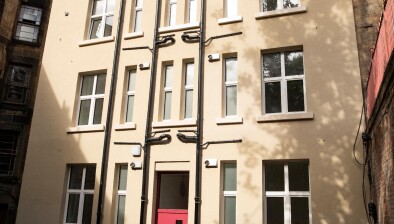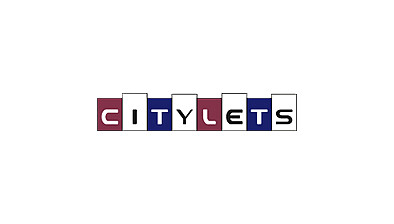Housing and community concerns revealed as Airbnb short-term lets increase

Concerns have been raised that the rapid increase in Airbnb rented properties could harm residential communities in Scotland and impact on the country’s housing stock.
A report by investigative platform The Ferret has revealed worries over anti-social behaviour, regulation failures, housing stock and the changing nature of residential communities as short-term lets increase.
According to new analysis by consultancy Indigo House, produced for the Scottish Government, overall Airbnb listings in Scotland increased by 184% from January 2016 to January 2017.
The study urged risks to be balanced against benefits.
“The options to be explored to mitigate the risks to long term housing supply, the impact on communities, and the risks to health and safety should be balanced against the positive role that short lets can play in Scotland’s tourism economy,” it said.
After a “dramatic” acceleration in new listings going online over the last two years, almost one in 70 privately occupied houses in Edinburgh is now listed on Airbnb, and more than one in 80 in the Highlands, with high concentrations in tourist areas from Edinburgh’s Old and New Towns to Skye and Aviemore.
According to The Ferret, the City of Edinburgh Council said that it had written to the Scottish Government and been advised that there is a panel looking at the issue, “which will make recommendations for all local authorities in due course”.
Edinburgh Old Town resident and Grassmarket community committee member, Elspeth Wills, pointed out that official action was “at a snail’s pace” while Airbnb was “snowballing”.
“It’s really affecting the community and house prices, lots of people are just buying for investment and it’s mushroomed out of all control. Whole tenements in the Grassmarket are now short-term lets,” she said.
“Of course, the last thing we want to do is ban tourists. A lot of tourists enjoy being in a city where they can meet locals and they can be part of local life, and yet that is going to disappear in parts of Edinburgh. It has changed hugely in the last ten years. The way it’s going, as a remaining Old Town local, I will become just part of a wider stage set.”
Edinburgh Conservative Councillor Joanna Mowat said that there were a series of practical problems with short-term lets. These included noise, extra rubbish, parties, suitcases being dragged around, damage to common stairs, and concerns over overcrowding.
“It is often more than would be living there if it was being lived in by a family or shared amongst tenants. There are concerns about the unregulated nature of the letting so there are no fire checks on electrical equipment, fire blankets needed or smoke alarms required and checked,” she said.
“However what is probably of most concern is the feeling of insecurity that people describe when their stair is being used by people they don’t know. That sense of disconnect that is fun when on holiday seeps into one’s everyday life making home feel less secure, and it is that that is probably most damaging to those residents affected by a lot of Airbnbs or short-term lets in their area.”
Between January 2016 and 2017, the number of properties available to rent in their entirety rose from 3,210 to 9,115 across Scotland. Hotspots include tourist destinations such as Edinburgh; the Highlands – especially Aviemore – Inverness and Skye; and the scenic coastal route of Fife.
Whole property rentals tend to be thought of as more problematic than rental of private rooms in homes because they can lead to property shortages in popular tourist areas, as well as entrepreneurs renting out multiple properties relatively free of any official enforcement of regulations.
Private room rental tends to be more positively received, as they don’t displace residents and offer tourists a more personal experience.
Over 2,800 whole properties were up for rent on Airbnb in Edinburgh alone in 2017, according to data from AirDNA, a private company specialising in data on Airbnb rentals.
Visitor surveys also indicate a rise in the popularity of the site, showing that 9% of visitors to Edinburgh for one night or more were using Airbnb in 2016, up from 4% in 2014. There was an increase in Glasgow, from 1% to 5%.
In reply to concerns, an Airbnb spokesperson said: “Airbnb provides a more authentic and affordable way for guests to enjoy unique neighbourhoods in Scotland, and helps local families boost their income and afford their homes.
“While visitors using Airbnb account for just five per cent of the total number of visitors to Scotland in 2016, they boosted the local economy by almost £1 million per day and helped spread benefits beyond tourist hotspots.”
The Scottish Government convened an Advisory Panel on the Collaborative Economy this April to investigate threats and opportunities that new models such as Airbnb bring to the Scottish economy, including the tourism industry. It is expected to report its conclusions this December.
The City of Edinburgh Council did not respond to The Ferret to confirm whether it was planning any moves to regulate platforms like Airbnb.
However, it was reported by The Scotsman in April that the council was planning a crackdown on properties being rented over 90 days in a year.







